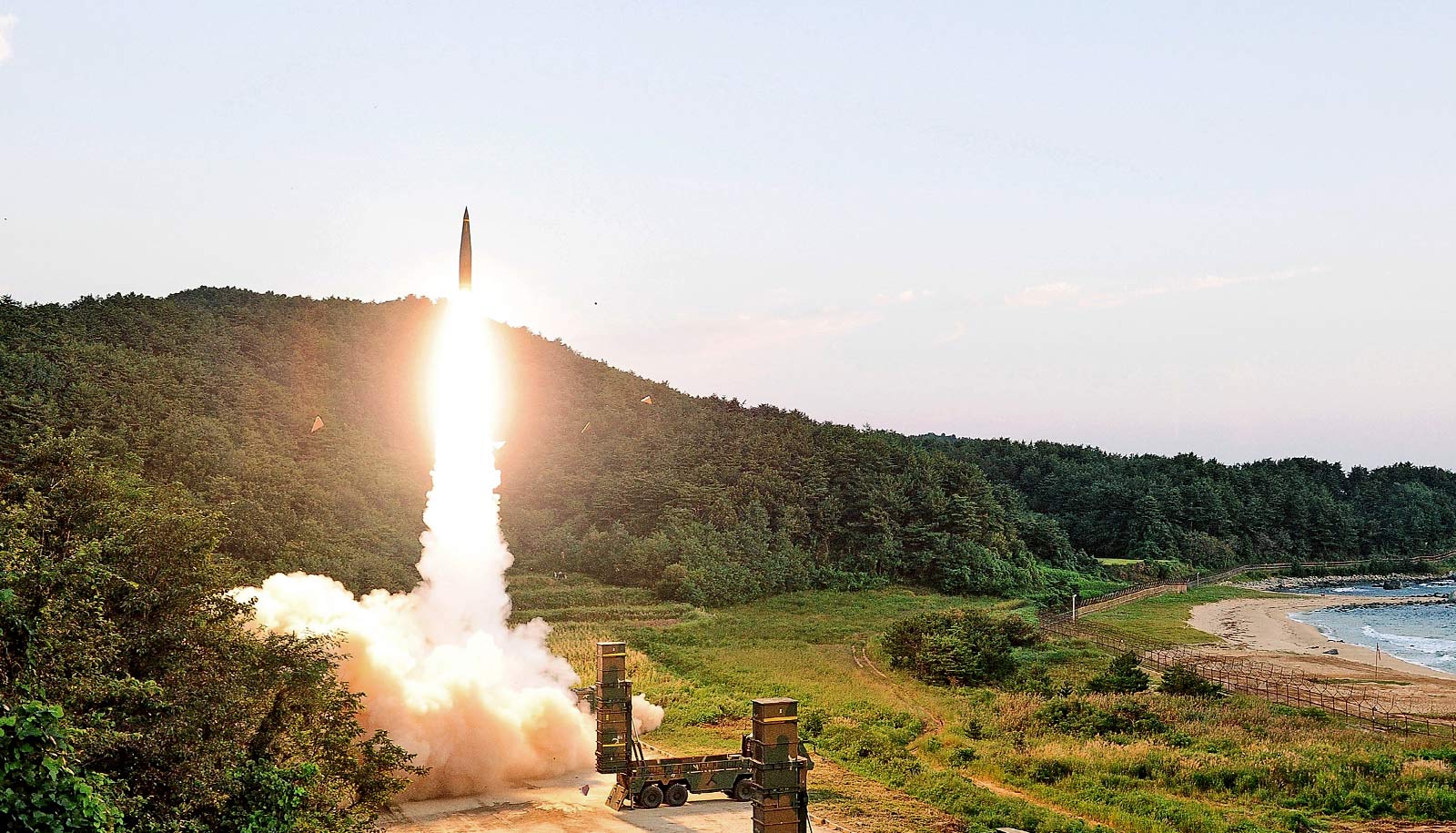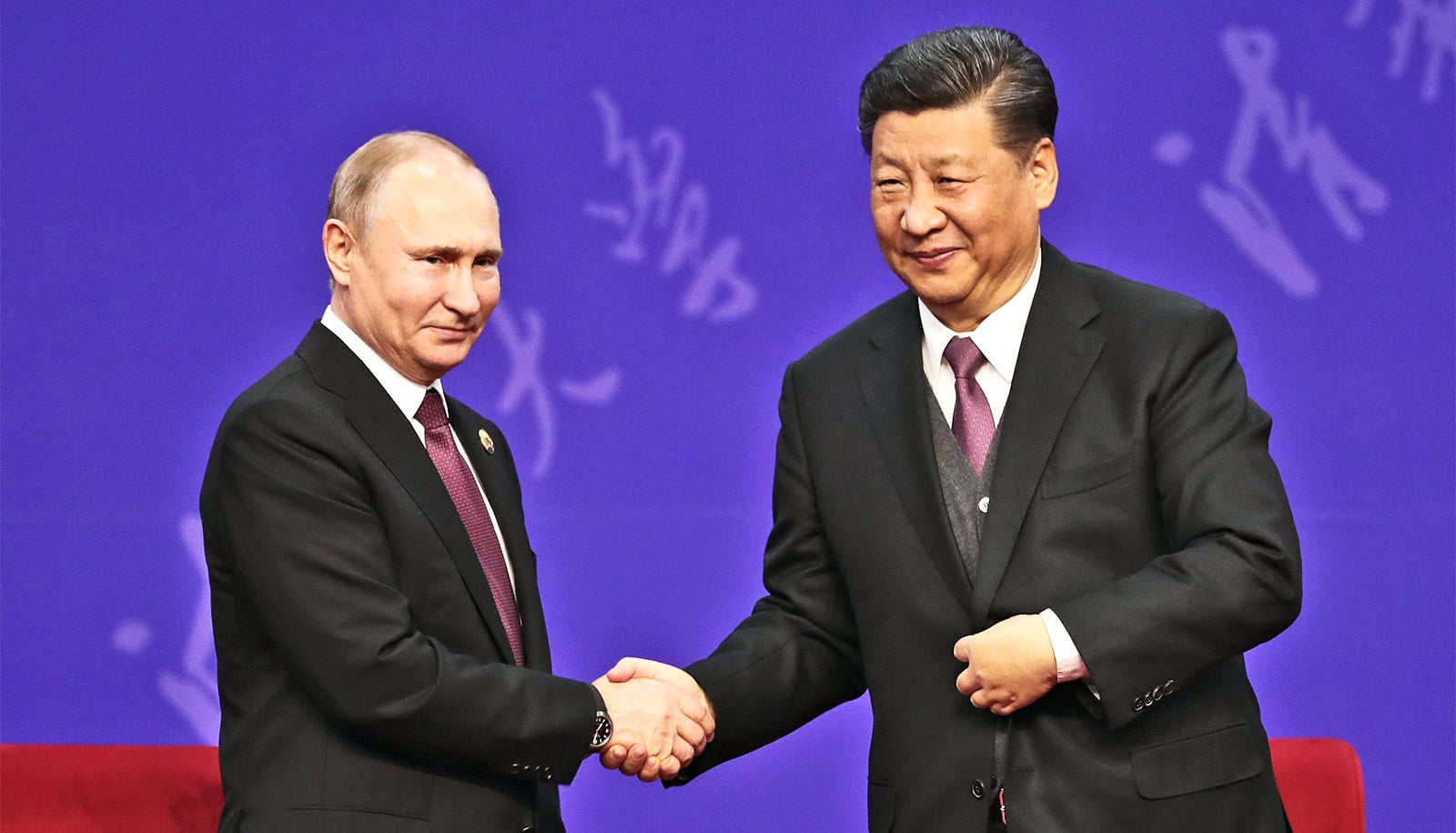Daily headlines warn of the dangers to nations and citizens in the event of a nuclear war, but little attention goes to what such an event would do to the environment.
Paul N. Edwards, a science and technology historian at Stanford University, discusses what the effects of a nuclear war would be on Earth itself—and how that in turn would affect us.
In the nuclear conversation, what are we not talking about that we should be?
We are not talking enough about the climatic effects of nuclear war.
The “nuclear winter” theory of the mid-1980s played a significant role in the arms reductions of that period. But with the collapse of the Soviet Union and the reduction of US and Russian nuclear arsenals, this aspect of nuclear war has faded from view. That’s not good.
In the mid-2000s, climate scientists such as Alan Robock (from Rutgers University) took another look at nuclear winter theory. This time around, they used much-improved and much more detailed climate models than those available 20 years earlier. They also tested the potential effects of smaller nuclear exchanges.
The result: an exchange involving just 50 nuclear weapons — the kind of thing we might see in an India-Pakistan war, for example — could loft 5 billion kilograms of smoke, soot, and dust high into the stratosphere. That’s enough to cool the entire planet by about 2 degrees Fahrenheit (1.25 degrees Celsius) — about where we were during the Little Ice Age of the 17th century. Growing seasons could be shortened enough to create really significant food shortages.
So the climatic effects of even a relatively small nuclear war would be planet-wide. What about a larger-scale conflict?
A US-Russia war currently seems unlikely, but if it were to occur, hundreds or even thousands of nuclear weapons might be launched.
The climatic consequences would be catastrophic: global average temperatures would drop as much as 12 degrees Fahrenheit (7 degrees Celsius) for up to several years — temperatures last seen during the great ice ages.
Meanwhile, smoke and dust circulating in the stratosphere would darken the atmosphere enough to inhibit photosynthesis, causing disastrous crop failures, widespread famine, and massive ecological disruption.
The effect would be similar to that of the giant meteor believed to be responsible for the extinction of the dinosaurs. This time, we would be the dinosaurs.
Many people are concerned about North Korea’s advancing missile capabilities. Is nuclear war likely in your opinion?
At this writing, I think we are closer to a nuclear war than we have been since the early 1960s.
North Korea would most certainly “lose” a nuclear war with the United States. But many millions would die, including hundreds of thousands of Americans currently living in South Korea and Japan (probable North Korean targets). Such vast damage would be wrought in Korea, Japan, and Pacific island territories (such as Guam) that any “victory” wouldn’t deserve the name. Not only would that region be left with horrible suffering amongst the survivors; it would also immediately face famine and rampant disease. Radioactive fallout from such a war would spread around the world, including to the US.
It has been more than 70 years since the last time a nuclear bomb was used in warfare. What would be the effects on the environment and on human health today?
To my knowledge, most of the changes in nuclear weapons technology since the 1950s have focused on making them smaller and lighter, and making delivery systems more accurate, rather than on changing their effects on the environment or on human health.
So-called “battlefield” weapons with lower explosive yields are part of some arsenals now — but it’s quite unlikely that any exchange between two nuclear powers would stay limited to these smaller, less destructive bombs.
Larger bombs can flatten cities. Many if not most people within the blast radius — which can be up to 10 miles — would die instantly. Those who survived would wish they hadn’t, since most would die later of severe burns or awful cancers. Radioactive fallout from these weapons’ debris clouds would reach the stratosphere, where it would travel worldwide, potentially contaminating crops and livestock as well as causing radiation sickness and cancer directly. Later, this fallout would cause genetic mutations in plants, animals, and human beings, as it has in the vicinity of the Chernobyl nuclear accident.
Nuclear explosions would also cause immense fires. The smoke from burning buildings, oil and gas fields, refineries, chemical factories, and industrial facilities would be highly toxic. Forest fires would engulf large areas. These effects would destroy more property and kill more people.
You have asked whether it is legal to start a nuclear war, given its environmental effects. Tell us about the impacts of such a war on climate change.
So far, nuclear weapons have been treated as a last resort. If leaders are rational, political scientists have always argued, they will never launch first because they know they’ll be destroyed, or at least badly damaged, by the retaliatory attack.
As I noted, the climatic consequences of nuclear war are potentially catastrophic. This fact, were it widely known and accepted, ought to act as an even further deterrent to nuclear conflict.
The laws of war require belligerent nations to avoid damage and casualties to neutral nations and non-combatants. But medium- and large-scale nuclear conflicts would have severe, and global, climatic effects. Most or all neutral nations and non-combatants would be damaged and would suffer casualties. So a strong argument can be made that any such war would be illegal.
My hope is that as the much slower catastrophe of global climate change continues to grow, the full scale of the climatic damage that could be done by nuclear war will also become a serious issue for international negotiation.
Source: Stanford University



